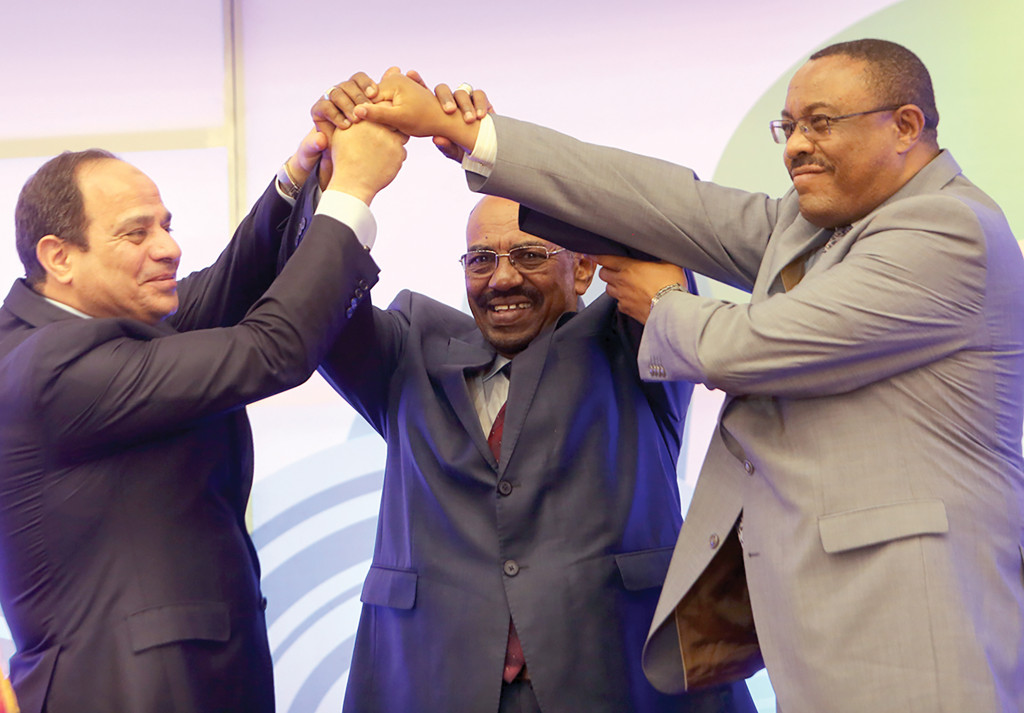AGENCE FRANCE-PRESSE
Three African leaders have signed an initial deal to end a long-running dispute over the sharing of Nile waters and the building of Africa’s biggest hydroelectric dam in Ethiopia.
The leaders of Egypt, Ethiopia and Sudan signed the agreement in Sudan’s capital, Khartoum.
Egypt has opposed the Grand Ethiopian Renaissance Dam, saying it would worsen its water shortages. Ethiopia says the dam will give it a fairer share of Nile waters.
In 2013, Ethiopia’s Parliament ratified a controversial treaty to replace colonial-era agreements that gave Egypt and Sudan the biggest share of the Nile’s water. Egypt’s then-President Mohamed Morsi said he would not allow the dam to endanger Egypt’s water supply.
Morsi’s successor, Abdel-Fattah el-Sissi, signed the deal with Ethiopia’s Prime Minister Hailemariam Desalegn and Sudan’s President Omar al-Bashir. The three leaders welcomed the “declaration of principles” agreement in speeches in Khartoum’s Republican Palace.
Hailemariam said he wanted to give an assurance that the dam would “not cause any harm to downstream countries,” Reuters reported.
Sisi said the project remained a source of concern to Egypt. “This is because the Nile is their only source of water, in fact their source of life.”
Ethiopia wants to replace a 1929 treaty written by Britain that awarded Egypt veto power over any project involving the Nile by upstream countries. Ethiopia says the $4.7 billion dam will eventually provide 6,000 megawatts of power. Egypt was apparently caught by surprise when Ethiopia started diverting the Blue Nile, a tributary of the Nile, in 2013. Ethiopia says the river will be slightly diverted but will then be able to follow its natural course. The Blue Nile flows north, connecting to the White Nile in Sudan before making its way through Egypt and emptying into the Mediterranean.
Ethiopia has received strong backing from five other Nile-basin countries: Burundi, Kenya, Rwanda, Tanzania and Uganda.

